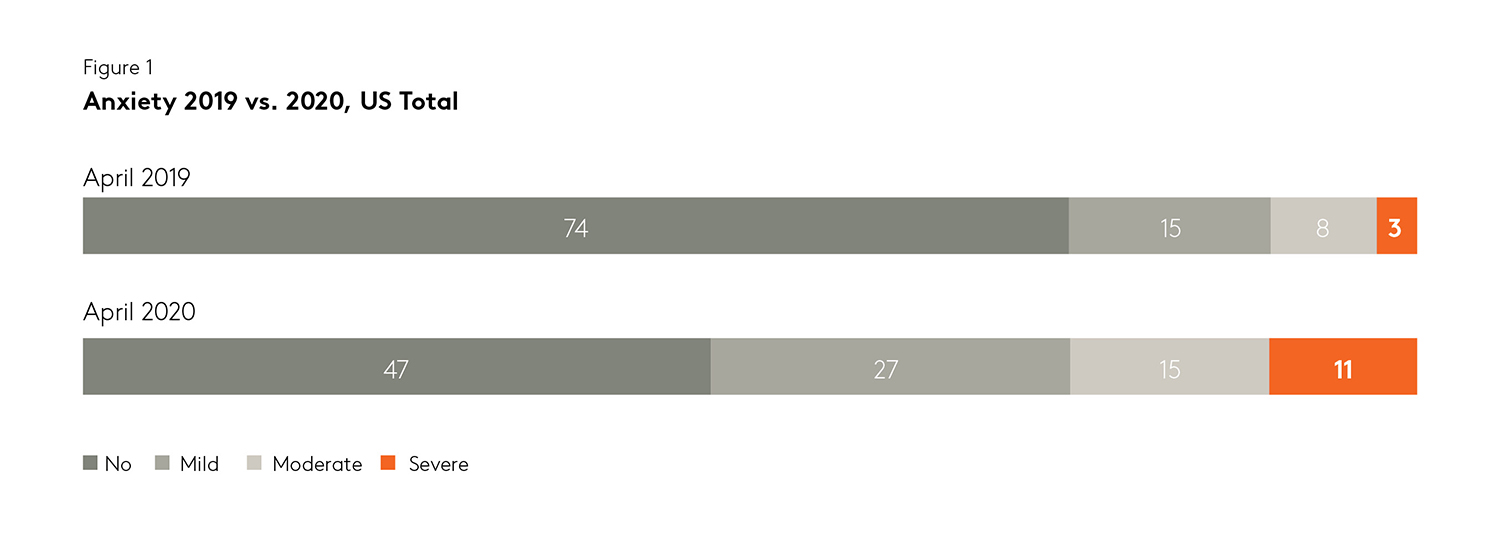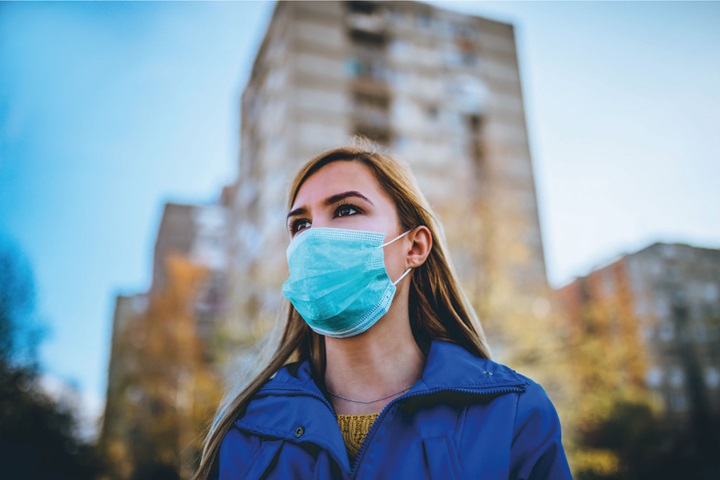Americans have united around the mantra “we are all in this together” to help fight COVID-19 and its repercussions. While the strategy of social distancing features prominently in our plans to contain the number of affected people, the necessary constraints of physical distancing are impacting American’s mental health in ways not seen before.
Findings from Kantar’s National Health & Wellness study, which uses the validated GAD-7* and PHQ- 9** scales to measure anxiety and depression, reveal that Americans are experiencing increased strain on their mental health since the outbreak of COVID-19. The numbers are staggering: 53% of Americans state they are now feeling anxiety since the start of the pandemic, compared to only 26% a year ago. The number of Americans who claim to have severe anxiety has more than tripled since the outbreak of COVID-19, from 3% to 11% (Figure 1). 50% of Americans state they are experiencing depression as the pandemic persists, compared to 20% beforehand.

These impacts vary by demographics. Younger Americans (18-34) over index versus the national average, with 65% feeling anxious versus 39% before the outbreak. And equally dramatic impacts are being seen across ethnic groups. Prior to COVID-19, measures of severe anxiety among African Americans and Asians were near non-existent and are now 15%; moderate to severe anxiety among Hispanics has doubled from 16% to 34%.
The financial impacts of COVID-19 on Americans have a close correlation with their mental health. Americans with the highest levels of anxiety are also the most concerned about their financial security going forward. While 62% of Americans overall are concerned the pandemic will reduce their monthly income; Hispanics (80%), Millennials (75%), Asians (74%), and African-Americans (65%) indicate higher than average levels of concern (Figure 2 video).
The repercussions of COVID-19 go beyond American’s physical health and extend into our financial and mental stability; they also extend into our expectations from marketers. Kantar’s ongoing COVID-19 Barometer study show that people want brands to go beyond stock empathy and demonstrate practically and realistically how they can help improve our altered lives. Healthy Americans are table stakes for the recovery of the national economy, brands and marketers who embrace this challenge will be recognised and rewarded by consumers into the future.
* GAD-7: Generalized Anxiety Disorder 7-item scale
** PHQ-9: Patient Health Questionnaire 9-item scale for quick depression assessment


